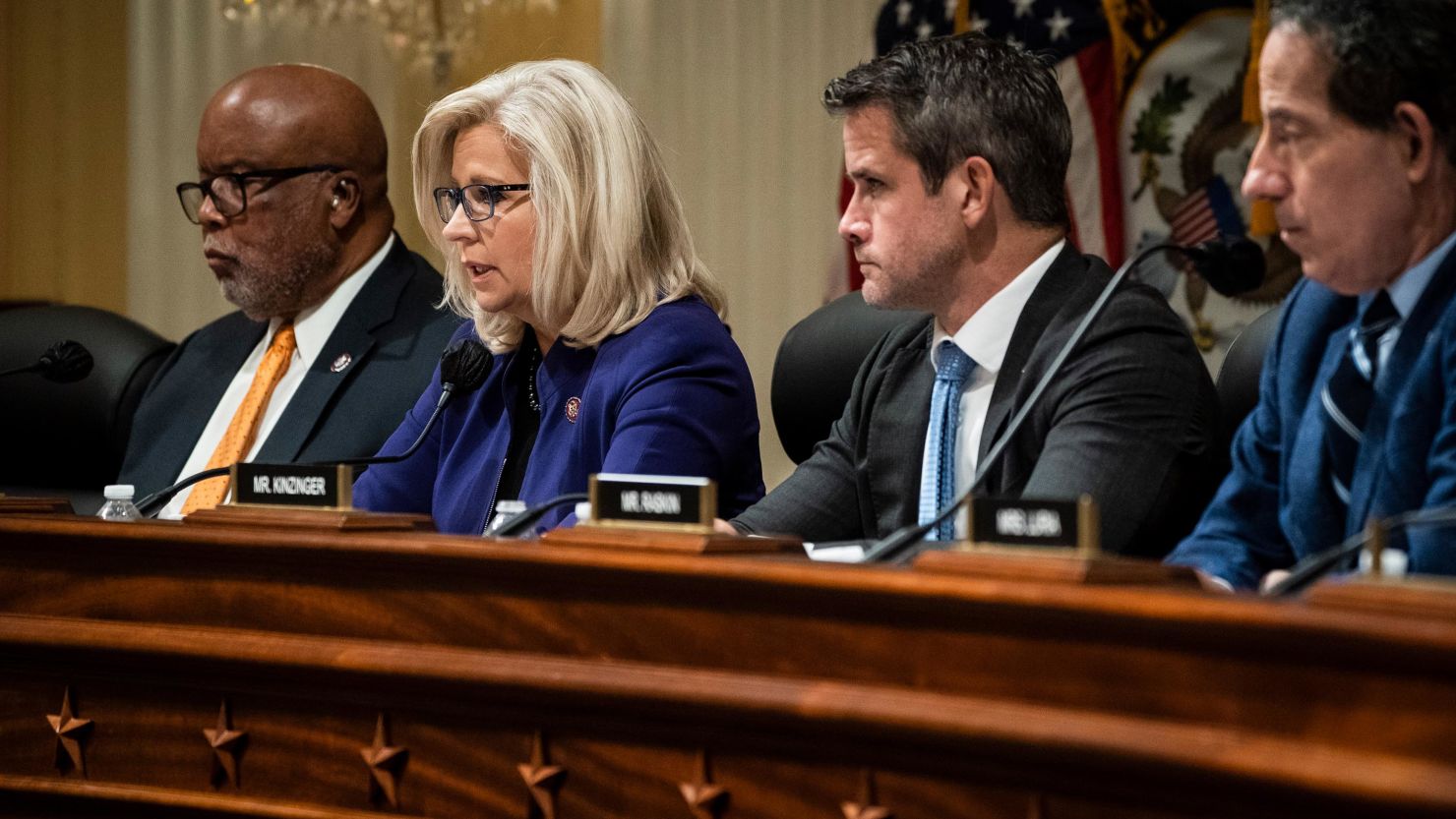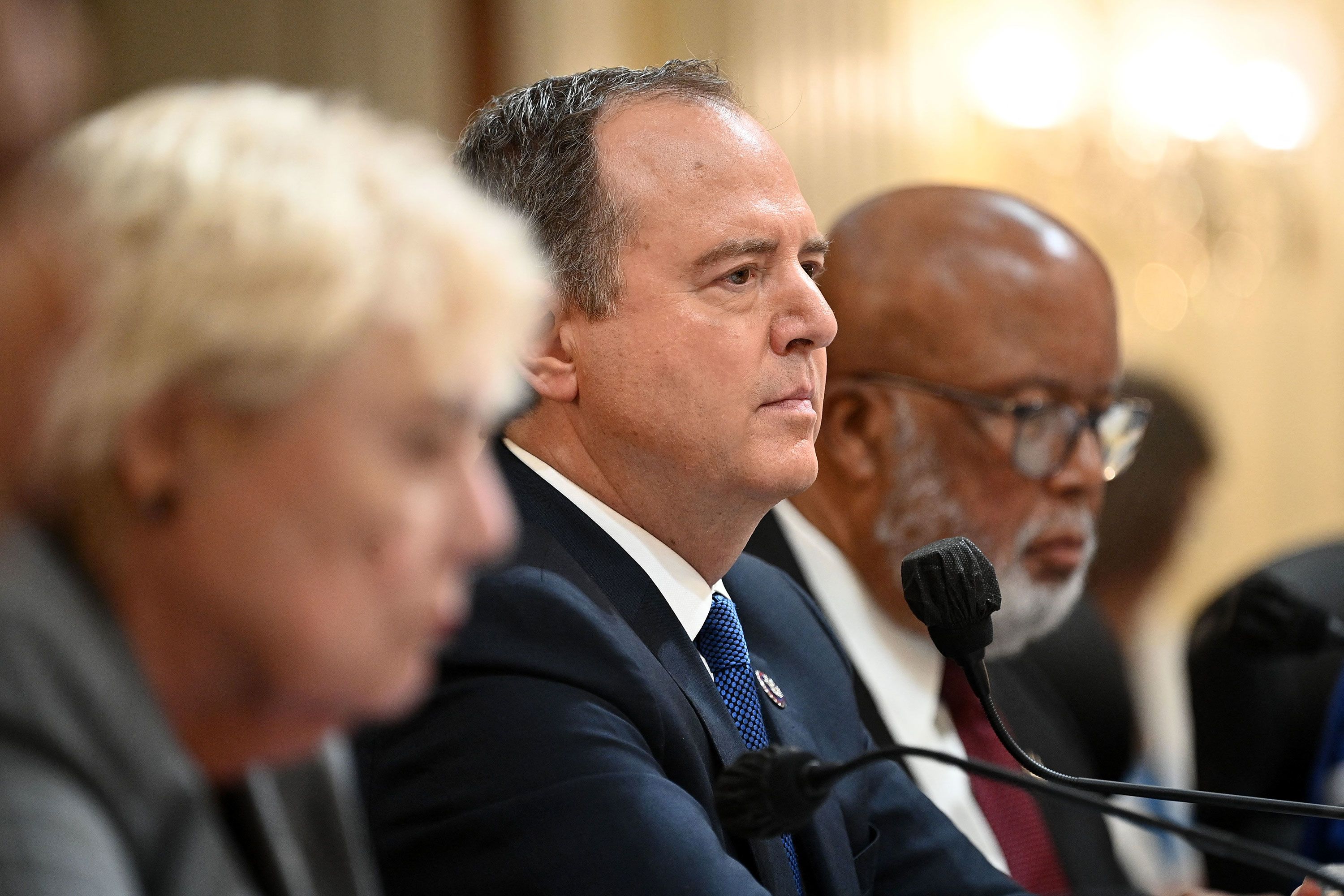
Members of the January 6 investigative committee are responding firmly to former President Donald Trump’s recent threats to nullify the pardons granted to those involved in their investigation. Trump claimed that the pardons, issued by President Joe Biden, were invalid because they were signed using an autopen—a machine that replicates the president's signature.
The committee members, however, are standing by their work, arguing that Trump lacks the authority to revoke the pardons and defending their investigation as thorough, fair, and conclusive.
The pardons in question were granted by Biden in his final days in office, preemptively protecting the investigators from potential prosecution by the incoming Trump administration. These pardons applied to committee members who had been involved in investigating the events surrounding the violent January 6 riot at the U.S. Capitol.
In response to Trump’s claims, the committee members have asserted that they conducted an open, rigorous inquiry and that their findings regarding Trump’s role in the Capitol attack are irrefutable.
Rep. Jamie Raskin (D-Md.), a member of the committee, said in an interview with The Hill that Trump’s threats are politically motivated and lack legal substance. “Despite their threats to Congresswoman Cheney and the chairman of our committee, Bennie Thompson, no one has committed any kind of infraction in the conduct of the Jan. 6 proceedings, nor in the preparation of our report, and no one has laid a glove on a single factual statement in our report,” Raskin said.
He emphasized that the committee stands by its work and findings, stating that the investigation was thorough and not influenced by partisan interests.

Raskin dismissed Trump’s threats as “political noise,” adding that the committee is proud of its efforts to document the insurrection. Other committee members were equally defiant.
Former Rep. Adam Kinzinger (R-Ill.), another committee member, wrote in a Substack post, “The January 6 Committee did its job. It stood up for democracy while Trump and his sycophants tried to burn it down. The people who cooperated did so in the name of truth, accountability, and the preservation of our republic.
They were almost ALL REPUBLICANS. And now, because he can’t handle reality, Trump wants to puff out his chest and threaten the committee? Fine. Do it. Or shut up.”
Sen. Adam Schiff (D-Calif.), who also sat on the committee, echoed this sentiment on social media, writing on X, “The members of the Jan 6 Committee are all proud of our work. Your threats will not intimidate us. Or silence us.”
The committee’s investigation was triggered by the storming of the U.S. Capitol by a mob of Trump supporters on January 6, 2021, in an attempt to prevent Congress from certifying the results of the 2020 election. During the riot, more than 140 law enforcement officers were injured, and the attack was seen as a direct assault on the democratic process.
The committee, which included two Republican members, concluded that Trump was the central figure behind the violence and had incited the insurrection.
In the wake of Trump’s loss in the 2020 election, the debate over the events of January 6 and the role of the committee has become highly partisan. Trump and his allies have sought to downplay the violence of the day, with some describing the event as a “day of love” and portraying the rioters as victims.

They have also accused the committee of conducting a politically biased investigation, with Trump calling it a “witch hunt.”
The controversy surrounding the pardons, however, has added a new dimension to the political battle. In December 2020, Trump had threatened to imprison the members of the investigative committee, prompting Biden to issue the pardons on his last day in office.
Trump had also issued pardons to more than 1,500 individuals convicted of crimes related to the Capitol riot, including those who had assaulted law enforcement officers.
On Sunday, Trump escalated his rhetoric, claiming that the pardons were invalid due to Biden’s use of an autopen to sign them. “The ‘Pardons’ that Sleepy Joe Biden gave to the Unselect Committee of Political Thugs, and many others, are hereby declared VOID, VACANT, AND OF NO FURTHER FORCE OR EFFECT, because of the fact that they were done by Autopen,” Trump wrote on his social media platform, Truth Social.
He added that he was prepared to launch criminal investigations into the committee’s work, alleging that they had destroyed or deleted evidence during their investigation.
Rep. Bennie Thompson (D-Miss.), the chairman of the January 6 committee, dismissed Trump’s latest threats, asserting that the investigation was legally sound and that Trump’s rhetoric had no basis. Thompson, who had been open to the idea of pardons before Biden’s actions, wrote on X, “Trump was responsible for Jan 6.
That’s why on day one he pardoned those who beat police that day. We thoroughly & legally investigated what he did and have lived rent free in his mind since. He knows his guilt. I am not afraid of his rant that has no basis in reality.”
Rep. Raskin, who is also a constitutional law expert, pointed out that Trump lacks the power to revoke the pardons. Raskin explained that the Constitution grants the president the authority to issue pardons, and that these pardons do not require a written signature to be valid.
According to Raskin, the president can issue pardons verbally or through other means, such as using an autopen. He cited previous legal opinions from the Justice Department and the U.S. Court of Appeals for the 4th Circuit that confirmed the constitutionality of the pardons, regardless of the method used to sign them.

Raskin’s argument was bolstered by a 2024 opinion from the 4th Circuit Court of Appeals, which stated that the Constitution does not mandate a specific form for presidential pardons. The ruling clarified that the president’s clemency power is broad and does not require a written document.
Additionally, a 2005 memo from the Department of Justice’s Office of Legal Counsel affirmed that it is lawful for a subordinate to sign the president’s name, as long as the president has authorized the action.
Despite the legal arguments, the White House has defended Biden’s use of the autopen, with Press Secretary Karoline Leavitt suggesting that Trump’s comments were more of a distraction than a legitimate legal challenge. Leavitt deflected questions about the legality of the pardons, instead raising concerns about Biden’s cognitive ability and whether he had authorized the use of his signature.
The ongoing back-and-forth over the pardons is part of a larger political battle over the legacy of the January 6 insurrection and the accountability of those responsible. The members of the January 6 committee are standing firm in their defense of their work, arguing that they have documented the truth about Trump’s role in inciting the riot, and that they will not be intimidated by his threats.
“The members of the January 6 Select Committee did our legislative work uncovering the role Trump played in his efforts to overturn the 2020 election,” Rep. Zoe Lofgren (D-Calif.) wrote on X. “He should be ashamed, & he is trying to erase the truth. Yet, the truth remains, & we won’t be intimidated or silenced.”
-1746950212-q80.webp)
-1745829232-q80.webp)

